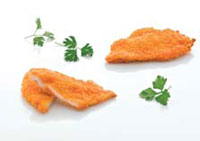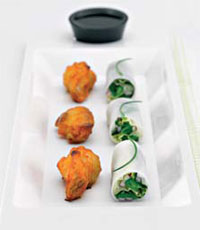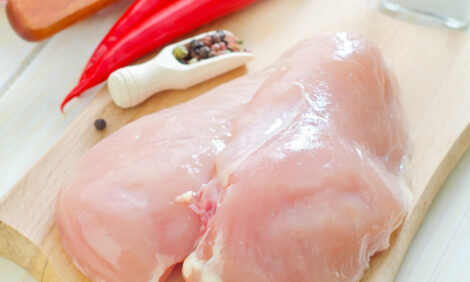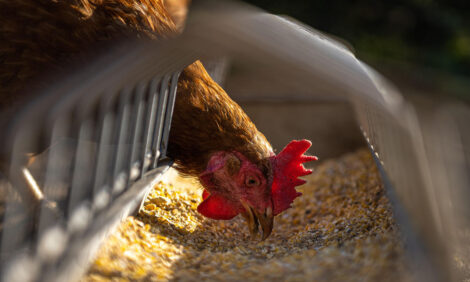



AVEC Annual Report 2012: Marketing Standards - Labelling of Poultrymeat
UN-ECE Standards, food information to consumers (including country-of-origin labelling) and the proposal for eco-labels on foods are among the topics on labelling addressed in the 2012 annual report from AVEC, the Association of Poultry Processors and Poultry Trade in the EU Countries.
Reg. 543/2008 implements the marketing
standards for poultry as laid down in the
Reg. 1234/2007.
AVEC has studied the
existing marketing standards for
poultry meat and has drafted amendments
to be presented to the European
Commission in the second half of 2012. The suggestions regard especially
the definitions, the chilling methods, the origin labelling and the
requirements, registration and record keeping of different types of farming.
UN-ECE Standards
UNECE's (United Nations Economic Commission for Europe) major aim is to promote pan-European economic integration. UNECE located in Geneva is one of the five regional commissions of the UN Geneva. Its mandate is to provide analysis, policy advice and assistance to governments and to develop norms, standards and conventions to increase international cooperation within and outside the UNECE region.

The areas of work are economic
cooperation and integration, energy,
environment, sustainable land management,
gender, population, statistics, transport and
trade. To facilitate international trade, global
agricultural quality standards are
developed. UNECE is the only regional
commission with a mandate in agricultural
quality standards. For poultry, international
standards have been published for chicken meat (2007), duck meat (2008),
turkey meat (2010) and goose meat (2011).
In April 2012, a bureau and rapporteurs' meeting was organized to discuss
the existing standards and a possible extension of the scope by including
further processed products following a request from the USDA. The
conclusion was that it was not advisable to extend the scope of the
existing standard, but to develop a separate standard for prepared and processed products.
The scope of the future standard has been defined. It
will be presented to the Specialized Section on Standardization of Meat in
September for assessment and a decision to present it to the Working
Party on agricultural quality standards in November 2012. Once the
working party has adopted this, the process of developing the standard
will start. The work will focus on the definitions of the products to be
included and other relevant quality aspects.

Food Information to Consumers
The final Reg. 1169/2011 on the 'provision of food information to
consumers' was published in the official journal on 11 November 2011.
DG AGRI has the lead on the origin labelling of article 26(b) for meat and
is conducting the Impact Assessment on country of origin labelling in
consultation with stakeholders. This has to be concluded with the adoption
of implementing acts by 13 December 2013.
Later, DG SANCO will decide
on the origin labelling of meat as an ingredient and processed products.
AVEC is involved in the process and has regular contacts with the DG
AGRI Section, in charge of the Impact Assessment for poultry meat.
AVEC Position on Labelling of Origin
Consumers want to be informed about the origin of the poultry meat
they eat. AVEC understands consumer demands as we are all consumers.
It has doubts, however, about the added value of too much information.
Information must always be clear and easy to understand.
AVEC is advocating mandatory labelling indicating the place of
farming by the mandatory indication of 'EU' followed by the name of
the Member State, or mandatory indication 'non EU' followed by the
name of the country. This should apply to unprocessed poultry meat
and to poultry meat preparations and products containing 25 per cent or
more poultry meat in all stages until the consumer.
In brief, until the consumer all products containing 25 per cent or more
poultry meat should be mandatory labelled with the place of farming
indicating 'EU' plus the name of the Member State or 'non EU' plus
the name of the third country.
Other issues at stake and to which AVEC is paying attention in the
upcoming Regulation are the 'use by', 'best before' and freezing date, the
definitions of minced meat, meat preparations and meat products and
mechanically separated meat. In the preamble of the regulation, it is
suggested that a study on the opportunity to provide the consumer with
information on the stunning of animals at slaughter should be considered
in the context of a future EU strategy for the protection and welfare of
animals.
Eco-Label Initiative for Food Products?
In early 2012, DG ENVI conducted a consultation on ,delivering more
sustainable consumption and production,. AVEC is in general against an
eco-label for food since it is more likely to create confusion in the minds of
consumers and bring unfair competition especially if it would be allowed
only for some food products, e.g. organic, fish, bread.
However, if an eco-label were to be introduced, it is important that
scientifically proven and harmonised assessment criteria are developed and
applied on equal terms for all products concerned by the eco-label to
avoid any unjustified discrimination.
Furthermore, to avoid unfair global competition, the criteria should be
recognised and applied by WTO.
AVEC is promoting more education of consumers, preferably from when
they are very young, to understand the significance of the choices they
make for emotional, nutritional and rational reasons. Improved information
may create a better understanding and promote a better informed final
purchasing choice.
Common Agricultural Policy (CAP) Proposals
In October 2011, the European Commission published proposals for the
reform of the CAP. In 2012, the Commission has been conducting debates
with the Council and Parliament to find an agreement for adoption of the
reform by the end of 2013.
AVEC has studied the results of the Impact Assessment as published by
DG AGRI. The assessment shows very negative and worrying effects for
the EU poultry sector if the Proposal were to be implemented as it is
today. AVEC concerns arising from the greening measures imposed on
arable farms adversely and disproportionately affecting EU poultry
producers; they have been communicated through a detailed letter
submitted to Commissioner Ciolos in January and February 2012. AVEC
will continue to follow closely the on-going discussions.
References:
Regulation 1169/2011 on the food information to consumers.
The different UN-ECE standards may be accessed by:
1. http://www.unece.org/trade/agr/standard/meat/meat_e.html
2. http://www.unece.org/index.php?id=29707)
November 2012








